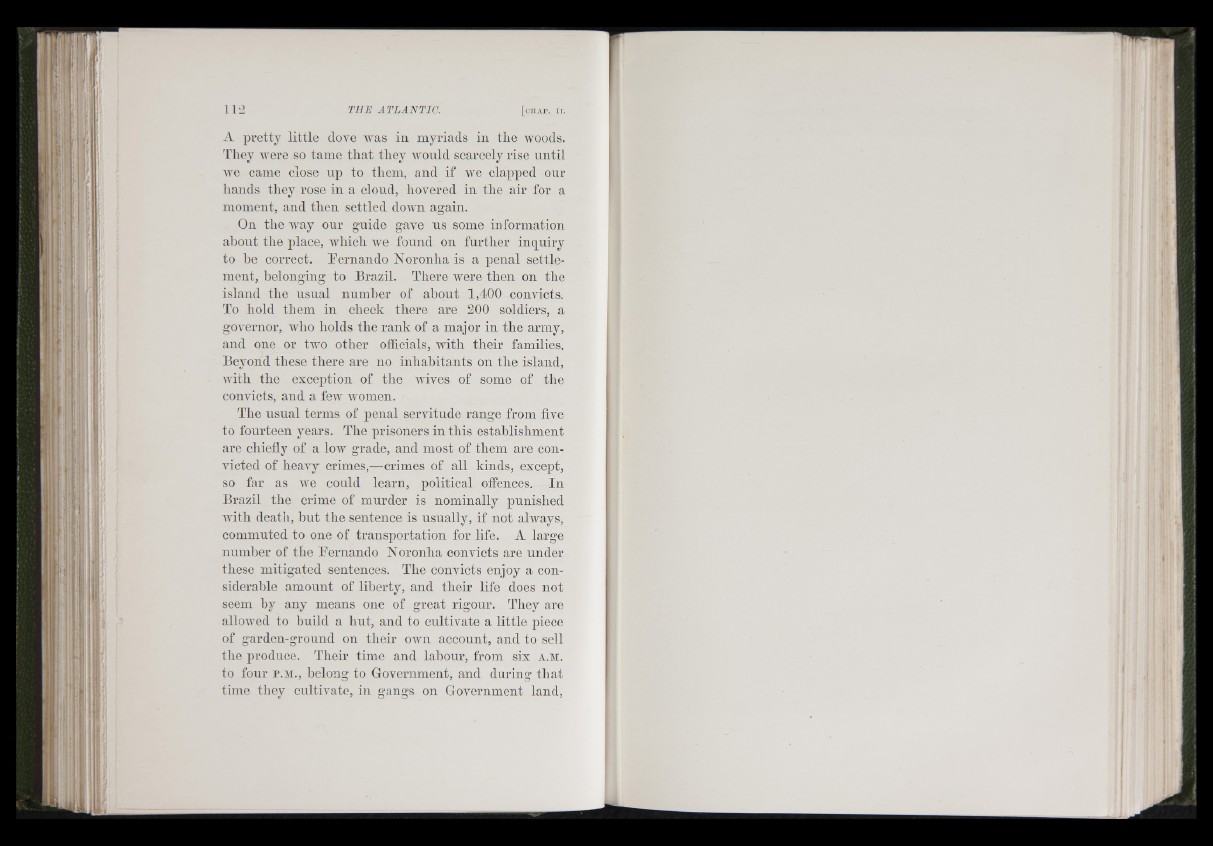
; ’L
ill
I >• ■ • •- i■i-!
I"'
A pretty little tloA'e was in myriads in the Avoods.
They Avere so tame th a t they AA'ould scarcely rise until
Ave came close up to them, and if Ave clapped our
hands they rose in a cloud, hovered in the air for a
moment, and then settled doAvn again.
On the Avay our guide gave us some iDforniation
about the place, AAdiich Ave found on further inquiry
to he correct. Eernando Noronha is a penal settlement,
helonging to Brazil. There Avere then on the
island the usual number of about 1,400 couAdcts.
To hold them in check there are 200 soldiers, a
goA'ernor, who holds the rank of a major in the army,
and one or tAVO other officials, AAdth their families.
Beyond these there are no inliahitants on the island,
Avitli the exce]ition of the Avives of some of the
couAdcts, and a fcAV Avomen.
The usual terms of penal servitude range from five
to fourteen years. The prisoners in this establishment
are chieliy of a low grade, and most of them are convicted
of lieaA'y crimes,—crimes of all kinds, except,
so far as Ave could learn, political offences. In
Brazil the crime of murder is nominally punished
with death, but the sentence is usually, if not always,
commuted to one of transportation for life. A large
iruniber of the Eernando Noronha convicts are under
these mitigated sentences. The conAdcts enjoy a considerable
amount of liberty, and their life does not
seem by any means one of great rigour. They are
allowed to build a hut, and to cultivate a little piece
of garden-ground on their own account, and to sell
the produce. Their time and labour, from six a .m .
to four P.Ai., belong to Goveiaiment, and during that
time they cultivate, in gangs on Government land,
f ,